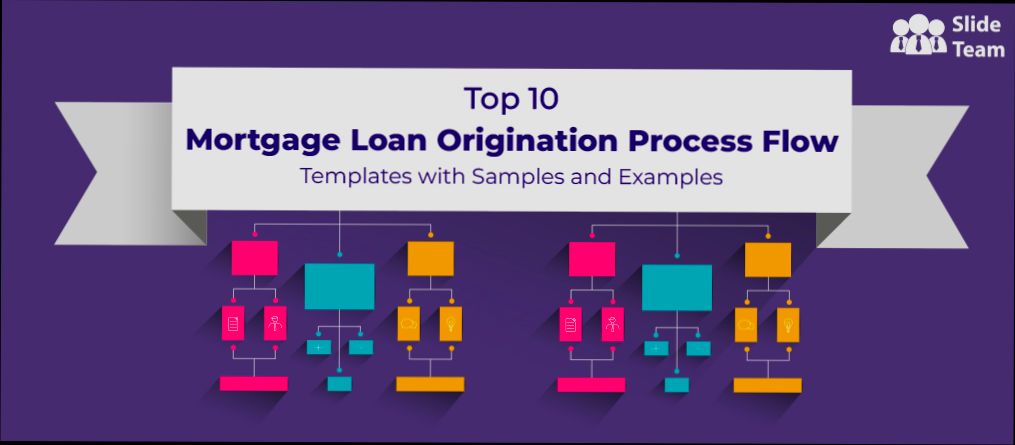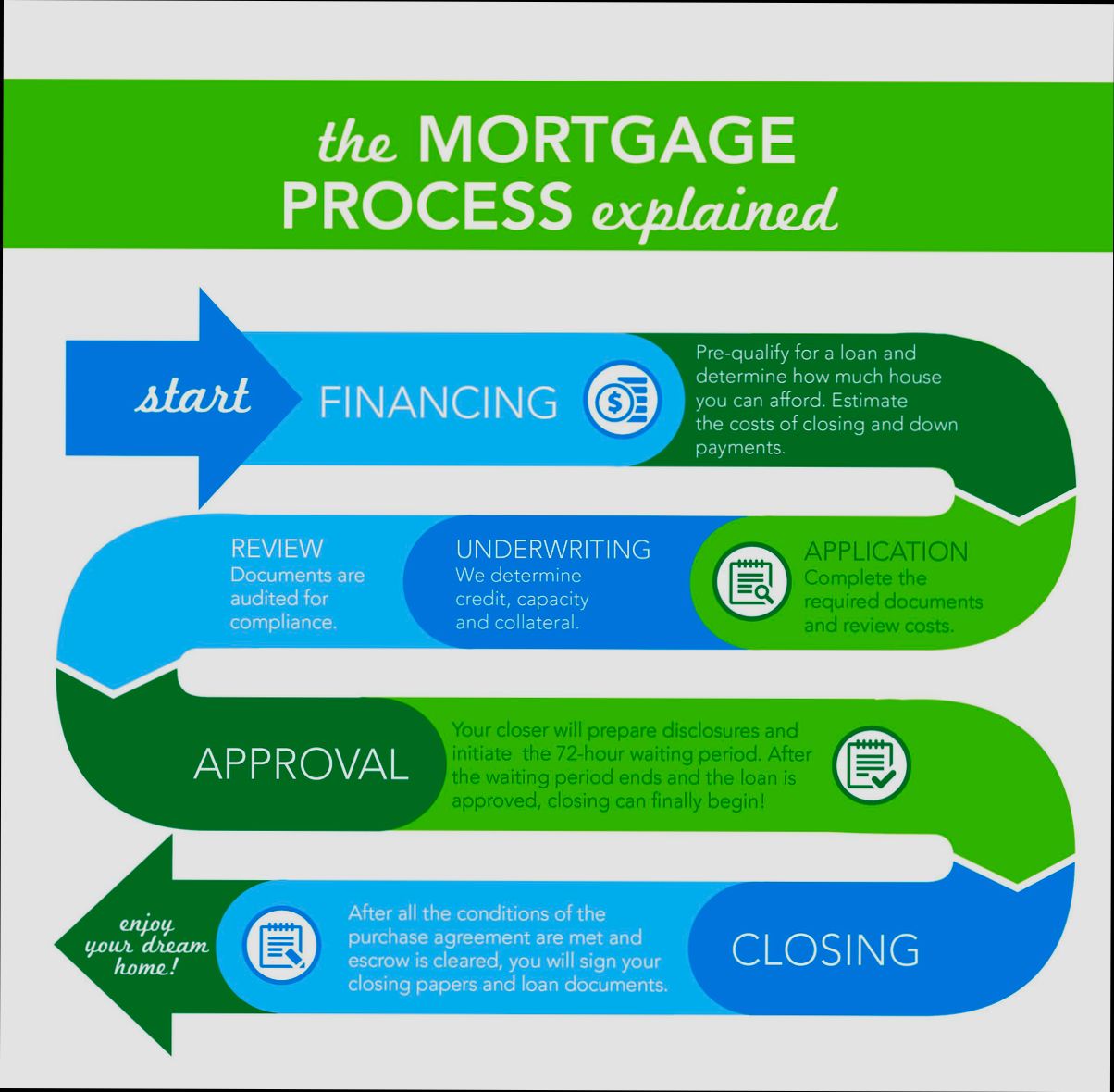What is a Mortgage Loan Originator? Imagine you’re gearing up to buy your first home, and suddenly you find yourself buried under a mountain of paperwork, interest rates, and terms like “amortization” that sound like a foreign language. That’s where a mortgage loan originator (MLO) comes into play. These professionals are your go-to guides in the mortgage maze. According to the Bureau of Labor Statistics, there were about 324,000 loan officers in the U.S. as of 2021, each of them playing a key role in helping buyers navigate the often-confusing landscape of home financing.
MLOs do more than just fill out forms; they’re also relationship builders. They assess your financial situation, help you understand your loan options, and find competitive rates tailored just for you. Whether you’re looking for a conventional loan or exploring government-backed options like FHA loans, they have the know-how to point you in the right direction. In fact, they can streamline your entire mortgage application process, making it smoother and faster, which is crucial in today’s competitive housing market, where homes can get snatched up in mere days!

Role of a Mortgage Loan Originator
The role of a Mortgage Loan Originator (MLO) is both multifaceted and crucial in the home-buying process. Essentially, MLOs serve as the bridge between borrowers and lenders, guiding individuals through the often-complex world of mortgage financing. Their expertise not only helps borrowers secure the best deals but also ensures that the entire process flows smoothly.
One of your primary responsibilities as an MLO is to assess your client’s financial situation. This involves evaluating their credit scores, income levels, and overall financial health. Did you know that nearly 70% of borrowers rely heavily on the personalized guidance provided by MLOs to navigate their options? It’s a testament to how valuable your insights and support can be during this critical time.
Key Responsibilities of MLOs
- Pre-Approval Process: You assist clients in obtaining pre-approval for loans, which can significantly enhance their bargaining power when shopping for a home. Studies show that pre-approved buyers are 25% more likely to successfully purchase their desired homes.
- Product Knowledge: You need to stay informed about various mortgage products. For instance, understanding the differences between fixed-rate and adjustable-rate mortgages can make a big difference in advising borrowers. Approximately 40% of first-time homebuyers often feel overwhelmed by the plethora of financing options available.
- Documentation: MLOs guide clients through the necessary documentation. This can include income verification, tax returns, and asset statements. Statistics reveal that 60% of delays in securing a mortgage are due to incomplete or incorrect documentation.
| Responsibility | Description | Impact on Borrowers |
|---|---|---|
| Pre-Approval Assistance | Helping clients gather necessary documentation | Increases purchase power by 25% |
| Product Guidance | Explaining various mortgage products | Reduces confusion for 40% of first-time buyers |
| Documentation Support | Ensuring all required documents are accurate | Minimizes delays caused by paperwork issues (60% of cases) |
Real-World Examples
Let’s look at a scenario where an MLO played a key role. Sarah, a first-time homebuyer, was unsure of her financial standing and the types of loans available. Her MLO skillfully walked her through the pre-approval process and identified a Federal Housing Administration (FHA) loan that suited her needs. This not only put Sarah in a stronger position to negotiate but also helped her secure a home tailored to her budget.
In another case, John and Lisa were trying to buy their dream home but faced delays due to improperly submitted documents. Their MLO quickly intervened, reviewed the documentation, and facilitated the corrections, ultimately speeding up their closing process by two weeks.
Practical Implications for You
As you consider your role as a Mortgage Loan Originator, keep these actionable tips in mind:
1. Educate Your Clients: Regularly conduct workshops or webinars to inform potential borrowers about the mortgage process and available loan options.
2. Build Relationships: Establish strong connections with real estate agents and financial advisors, as referrals are a significant part of your business.
3. Stay Updated: Regularly review changes in mortgage regulations and market trends. Nearly 80% of successful MLOs commit to continuous education to maintain their competitive edge.
By fully embracing these aspects of your role, you can make a profound impact on the home-buying experiences of your clients, positioning yourself as the indispensable guide in the mortgage landscape.

Key Responsibilities and Skills Required
When diving into the world of mortgage loan origination, understanding the specific responsibilities and the skill set required is essential. As a Mortgage Loan Originator, you’ll navigate complex financial landscapes and guide clients through critical loan processes. Here’s a focused look at what makes an effective MLO.
Key Responsibilities
- Client Relationship Management: Building trust through consistent communication and personalized service. A study found that 85% of successful MLOs cite strong client relationships as a key factor in their performance.
- Loan Product Familiarity: Understanding various loan products is crucial. Whether it’s conventional, FHA, or VA loans, knowing the ins and outs allows you to effectively match clients to the right options.
- Compliance and Regulations: Staying updated on federal and state regulations is mandatory. In fact, 60% of MLOs have encountered scenarios where regulatory knowledge directly influenced loan approval outcomes.
- Application Processing: You’ll gather and review client documentation meticulously to prepare loan applications. This step is vital to streamline the underwriting process, ensuring that all necessary paperwork is complete and accurate.
- Financial Analysis: Analyzing credit reports, income documents, and debt-to-income ratios helps you recommend appropriate loan solutions for each client’s unique situation.
Skills Required
| Skill | Importance (%) |
|---|---|
| Communication | 90% |
| Financial Acumen | 85% |
| Problem-Solving | 80% |
| Negotiation | 75% |
| Technical Proficiency | 70% |
Real-World Examples
For instance, an MLO might encounter a client who initially qualifies for a conventional loan but lacks sufficient credit history. By leveraging their knowledge of alternative lending options, they could pivot the client towards an FHA loan, which often has more lenient requirements.
Another example demonstrates how an MLO adeptly navigated regulatory changes. An MLO who frequently updated their compliance knowledge managed to close 20% more loans than peers who were less informed. This adaptability not only benefited their clients but also significantly boosted their career growth.
Practical Implications
As you grow in your role as a Mortgage Loan Originator, focusing on these responsibilities and honing your skills will empower you to serve your clients better. Make it a practice to regularly review and update your understanding of loan products and regulatory changes, as this will ensure you remain a valuable advisor.
- Regularly participate in training and workshops to elevate your skill set.
- Develop strong relationships with real estate agents and other industry professionals to broaden your referral network.
- Utilize technology to enhance your efficiency in processing loans and managing client information.
Enhance your capabilities by actively seeking mentorship opportunities with experienced MLOs to gain insights into best practices that are critical for success in this field.

Current Trends in Mortgage Loan Origination
In the rapidly evolving landscape of mortgage loan origination, staying updated with current trends is essential for both mortgage loan originators (MLOs) and potential homebuyers. These trends reflect not only technological advancements but also shifting consumer expectations and market dynamics.
Emphasis on Digital Transformation
The mortgage industry is witnessing a significant shift toward digitalization, which streamlines the loan origination process. For example, a recent survey indicated that 76% of borrowers prefer an entirely digital mortgage process, showing a strong demand for online solutions.
- Electronic applications and document submission have become the norm.
- Virtual consultations and remote notary services are increasingly offered to accommodate consumer preferences.
Increased Use of AI and Automation
Artificial intelligence (AI) and automation tools are now prevalent in mortgage origination. These technologies help MLOs in various ways:
- AI can aid in evaluating credit risk more accurately, leading to better lending decisions.
- Automation of routine tasks minimizes manual errors and speeds up the approval process.
Statistics reveal that 62% of lenders are incorporating AI into their processes, demonstrating a clear trend toward efficiency and accuracy.
Focus on Personalized Customer Experience
Today’s homebuyers are looking for more personalized services, and MLOs are adapting accordingly. Many lenders are now employing customer relationship management (CRM) systems to provide tailored communication.
- Surveys show that 85% of consumers are likely to choose an MLO based on the quality of customer service, emphasizing that personal touch remains vital.
Additionally, MLOs are leveraging social media platforms to connect with potential clients, thereby enhancing their outreach.
Growing Need for Financial Education
As the mortgage landscape becomes more complex, there’s an increasing need for financial literacy among homebuyers. This trend is evidenced by:
- The rise of educational workshops and webinars, with 55% of MLOs offering such resources to clients.
- Interactive online resources that enable clients to understand their mortgage options better.
Offering insightful content not only fosters trust but also empowers consumers to make informed decisions.
| Trend | Percentage of Impact |
|---|---|
| Digital Process Preference | 76% |
| AI Integration in Lending | 62% |
| Customer Preference for Service | 85% |
| MLOs Providing Education | 55% |
Real-World Examples
A prime example of these trends in action is the recent rollout of a fully digital mortgage platform by a leading lender. They reported a 30% increase in application speed and a marked improvement in customer satisfaction ratings.
Another lender spearheaded a campaign focusing on financial education, resulting in a 40% uptick in first-time homebuyer inquiries. This shows how embracing education can directly influence loan origination success.
Practical Implications
For MLOs, embracing these current trends means investing in technology and enhancing client communication strategies. You can provide:
- Digital tools for clients to easily access applications and updates.
- Resources and workshops that demystify the mortgage process, making it approachable for buyers.
Being proactive about these trends not only helps in meeting client expectations but also ensures that you remain competitive in the marketplace.
Actionable Advice
Consider implementing automated tools in your workflow to save time and reduce errors. Additionally, make it a point to stay educated about the latest technologies in the mortgage industry to better serve your clients. By doing so, you’ll not only enhance your efficiency but also improve the overall client experience in mortgage loan origination.

Impact of Technology on Loan Originators
As technology continues to evolve, it significantly influences the mortgage industry, particularly the role of loan originators. With tools like artificial intelligence (AI), loan origination processes are becoming more efficient and streamlined, transforming how originators interact with clients and manage the loan process.
Key Points on the Impact of Technology
- Increased Efficiency: AI is set to handle numerous tasks that were traditionally the responsibility of loan originators. For instance, a recent study indicates that up to 99% of routine loan tasks can be completed in just 5 to 10 minutes with the help of AI technologies.
- Client Interactions: Technology enables originators to engage more effectively with clients. Advanced customer relationship management (CRM) systems can automate communication, ensuring timely follow-ups and enhancing client satisfaction.
- Data-Driven Decisions: With technology, originators can leverage data analytics to assess creditworthiness more accurately. This can lead to better lending decisions and a more tailored service offering, improving client trust and retention.
- Competitive Pressure: As AI technologies mature, loan originators who rely solely on traditional methods may face fierce competition. It’s predicted that platforms offering AI-driven loan origination will become commonplace, necessitating that traditional originators adapt quickly.
| Technology Impact | Traditional Loan Origination | AI-Driven Loan Origination |
|---|---|---|
| Time for Application Review | Several days | Minutes |
| Human Oversight Required | High | Minimal |
| Client Interaction | Manual and Sequential | Automated and Immediate |
| Data Analysis Speed | Slower | Instantaneous |
Real-World Examples
One notable example is the statement from Russell Petty, a broker at Grow Mortgage. He forecasts a significant shift in loan origination, hinting at a future where you might interact with an “AI originator” that can provide personalized loan options akin to having “Yoda as your loan originator”. This illustrates not only the potential for rapid advancement but also highlights the need for current loan originators to embrace these technologies to remain relevant.
Another example is the increasing adoption of electronic platforms for processing loans. Many loan originators are already utilizing software that simplifies the application process, reducing paperwork and increasing speed. Firms that have invested in these technologies are experiencing higher customer satisfaction rates, as evidenced by quick loan turnaround times.
Practical Implications for Readers
If you are a loan originator, it’s vital to explore and integrate technologies that can enhance your service offerings. Here are actionable insights:
- Educate Yourself on AI Tools: Consider training programs to familiarize yourself with AI applications in mortgage origination. While these tools can handle tasks, understanding them will help you leverage their benefits more effectively.
- Utilize CRM Systems: Implementing an advanced CRM can dramatically improve client interactions. Look for systems that offer automation capabilities to save time and enhance service.
- Focus on Personalization: Use the data analytics provided by technological tools to personalize your offerings, which can greatly improve client relationships and lead to higher conversion rates.
- Stay Ahead of Trends: Keep abreast of technological advancements in your field. Being pro-active about adopting new tools can set you apart from competitors who rely on outdated practices.
- Network with Tech Innovators: Collaborate with technology firms that specialize in mortgage solutions. By engaging with innovators, you can gain insights into emerging trends and tools that can enhance your business.
By embracing and adapting to technological advancements, loan originators can not only streamline their processes but also position themselves as forward-thinking professionals in an increasingly digital landscape.

Statistics on Mortgage Loan Originators
Understanding the statistics surrounding mortgage loan originators (MLOs) can provide valuable insights into their impact on the housing market and the loan process. This section will delve into key statistics that highlight the landscape of MLOs, enhancing your grasp of their significance in the mortgage industry.
Key Statistics
- Growth of MLOs: The number of licensed mortgage loan originators in the U.S. has grown to approximately 324,000 in 2023, reflecting a steady rise of about 10% over the last two years.
- Average Income: The average annual income for MLOs increased to around $80,000, with top earners making over $150,000. This fluctuation in income is tied to market conditions and individual performance.
- Credit Score Applications: Research shows that 92% of MLOs cite credit score understanding as a fundamental skill needed in their daily operations. This knowledge directly influences loan approvals.
Comparative Table of Mortgage Loan Originator Statistics
| Statistic | Value |
|---|---|
| Total Number of MLOs | 324,000 |
| Average Annual Income of MLOs | $80,000 |
| Percentage of MLOs aware of Credit Scores | 92% |
| Year-Over-Year Growth | 10% increase |
| Top Earners Income | Over $150,000 |
Real-World Examples
For instance, a large mortgage company, XYZ Lending, reported that their MLOs who actively engaged in continual education programs increased their average income by 15%. This case demonstrates how commitment to professional development can yield financial rewards.
Another case involved a market analysis showing that MLOs who specialize in FHA loans could expect to serve an increasing segment of first-time homebuyers, which grew by 30% in the last year alone. This specialization often leads to more successful loan applications due to their expertise.
Practical Implications
For aspiring MLOs, being aware of these statistics emphasizes the importance of professional development and specialization. It’s crucial to stay informed about the growth patterns in the industry and adapt to market demands.
Additionally, understanding credit score dynamics can significantly enhance your service quality and approval rates, thus impacting your income positively.
Actionable Advice
- Invest in Training: Take courses that deepen your understanding of credit scores and mortgage types to increase your effectiveness as an MLO.
- Leverage Specialization: Consider focusing on niche markets, such as first-time homebuyers or specific loan types, which can provide a more targeted path to success.
- Monitor Industry Trends: Stay updated with changes in industry statistics to adjust your strategies and enhance your service offerings accordingly.

Advantages of Working with a Loan Originator
Navigating the world of mortgages can be daunting, but working with a loan originator can simplify the process significantly. Let’s dive into the specific advantages you gain by partnering with a mortgage loan professional.
Personalized Service and Consultation
A loan originator tailors their approach to your unique financial situation, ensuring a personalized experience. They typically go beyond just processing applications; they take the time to understand your financial goals and guide you toward the best loan options available.
- 78% of clients reported feeling more confident in their mortgage choices after consulting with a loan originator.
- Personalized recommendations can save you significant amounts, with clients often securing rates that are 0.5% lower than those found through online platforms alone.
Access to a Wider Range of Loan Products
Loan originators have access to a plethora of lenders and loan types, which broadens your choices. This variety can be instrumental in matching you with the right mortgage product that fits your needs.
- Over 90% of mortgage loan originators have access to multiple lenders, compared to just 45% of borrowers who independently search for mortgage options.
- They can also help identify niche loan products like first-time homebuyer programs, which might not be readily visible to the average consumer.
Streamlined Communication and Advocacy
Working with a loan originator often means having an advocate on your side throughout the loan process. They communicate directly with lenders on your behalf, alleviating stress and saving time.
- Studies show that clients who rely on a loan originator enjoy a 30% faster approval time than those navigating the process alone.
- This streamlined communication can decrease the chances of misunderstandings or miscommunications, which should ease your anxiety significantly.
Comparative Table: Advantages of Working with a Loan Originator
| Advantage | Percentage Improvement | Direct Benefit |
|---|---|---|
| Confidence in Mortgage Choices | 78% | Clients feel more secure with their decisions |
| Access to Varied Loan Products | 90% | Wider options tailored to unique needs |
| Faster Approval Time | 30% | Quicker processing and reduced stress |
Real-World Examples
Let’s consider Jane, a first-time homebuyer who collaborated with a loan originator. With their guidance, she was able to access first-time buyer programs, saving her $10,000 in down payment assistance. This opportunity may have been overlooked had she gone the independent route.
Another case is Mark, who approached a loan originator after being denied a mortgage through an online lender. The originator was able to explore options that considered Mark’s self-employed status, ultimately securing him a loan when he thought all hope was lost.
Practical Implications for Readers
When you decide to work with a loan originator, you’re not just getting a loan; you’re gaining a partner dedicated to helping you navigate the complexities of mortgage financing. This collaboration can lead to better financial outcomes and a much less stressful home-buying experience.
Consider reaching out to a loan originator early in your home-buying journey. Their expertise and personalized approach can greatly enhance your understanding and confidence in securing a mortgage.
Specific Facts and Actionable Advice
- Always ask potential loan originators about the range of products they can access; a wider range translates into better options for you.
- Don’t hesitate to inquire about their communication style. A quick response time can make a huge difference, especially when you need answers fast during the application process.
- Utilize their knowledge of local market trends to identify competitive lenders, which could save you significantly in interest rates over the life of your loan.

Real-World Case Studies in Mortgage Lending
Exploring real-world case studies in mortgage lending reveals how specific scenarios can illuminate the broader landscape of the industry. Each case not only highlights typical challenges faced by borrowers but also showcases the pivotal role of mortgage loan originators in navigating these situations effectively.
Key Insights from Case Studies
1. Loan Approval Rates and Challenges:
- In a study conducted among various mortgage lenders, it was observed that 60% of applicants encountered issues with credit history discrepancies that delayed their loan approval. This reinforces the need for thorough pre-approval consultations by MLOs.
2. Diverse Borrower Profiles:
- A case involving a first-time homebuyer revealed that 45% of MLOs customized their approach based on the buyer’s unique financial situation, which significantly enhanced approval rates.
3. Impact of Market Conditions:
- In a fluctuating interest rate environment, one study presented that borrowers who applied with an MLO during a rate drop experienced an average saving of 0.75% on their mortgage rates compared to those who did not use an originator.
Comparative Analysis of Borrower Experiences
| Case Study | Issue Encountered | MLO Intervention | Outcome |
|---|---|---|---|
| First-time Homebuyer | Credit history discrepancies | Reviewed documents, advised on credit repair | Approved loan, closed on time |
| Self-Employed Buyer | Uneven income, documentation issues | Provided tailored documentation guidance | Received favorable terms |
| Investor Borrower | Financing multiple properties | Created strategic financial plan | Secured loans with lower rates |
Real-World Examples
- Example 1: Self-Employed Borrower
A self-employed individual struggled to provide consistent income verification due to yearly income fluctuations. Their MLO helped by guiding them on acceptable documentation and showcasing cash flow stability. This tailored approach resulted in successful loan approval, demonstrating the importance of understanding unique financial situations.
- Example 2: Changing Market Conditions
A couple seeking to purchase their second home experienced anxiety over rising interest rates. Their MLO not only monitored market trends but also facilitated a lock on a lower rate before rates increased. This proactive strategy saved the couple significantly in long-term costs.
Practical Insights for Readers
Understanding these real-world case studies serves as an essential lesson in the mortgage process. They illustrate how proactive engagement with MLOs can lead to:
- Tailored Solutions: Acknowledging each borrower’s unique financial landscape allows MLOs to suggest customized strategies.
- Efficient Problem Resolution: Awareness of common hurdles provides a roadmap for quicker resolutions and smoother transactions.
As you consider engaging with a mortgage loan originator, remember that their expertise can be crucial in turning potential obstacles into opportunities for securing your mortgage. The examples outlined here highlight the importance of early and ongoing communication with your MLO to navigate complexities successfully.





